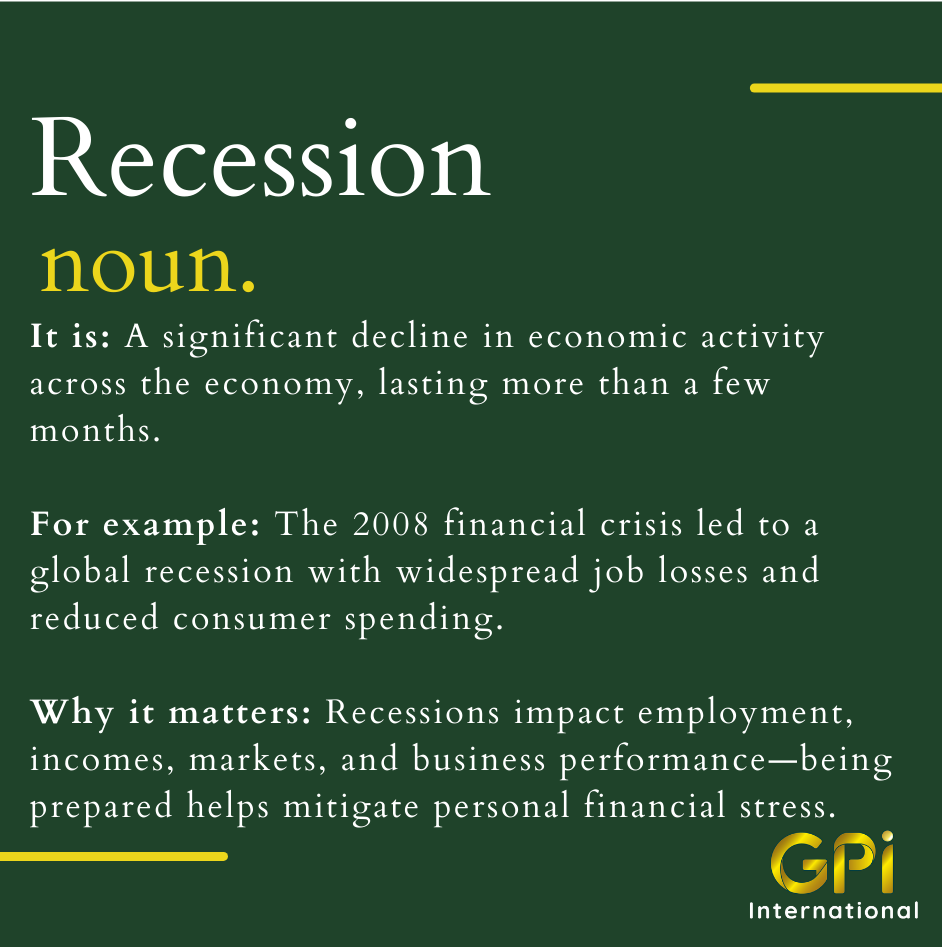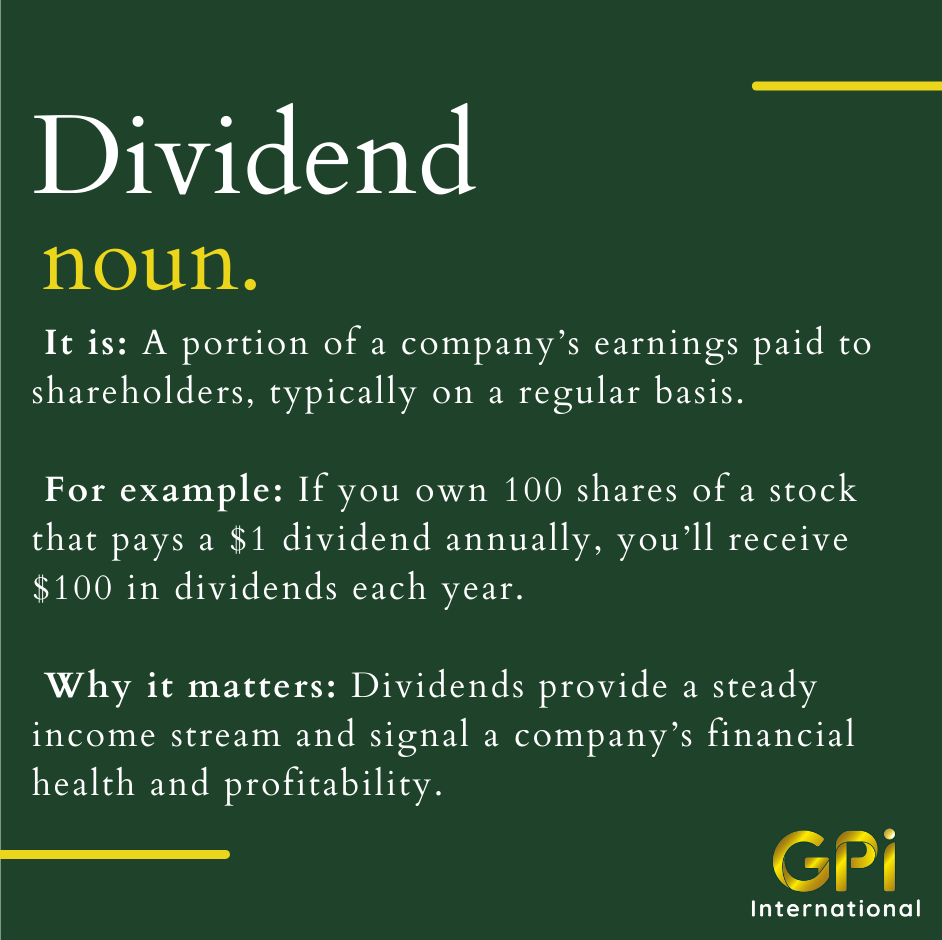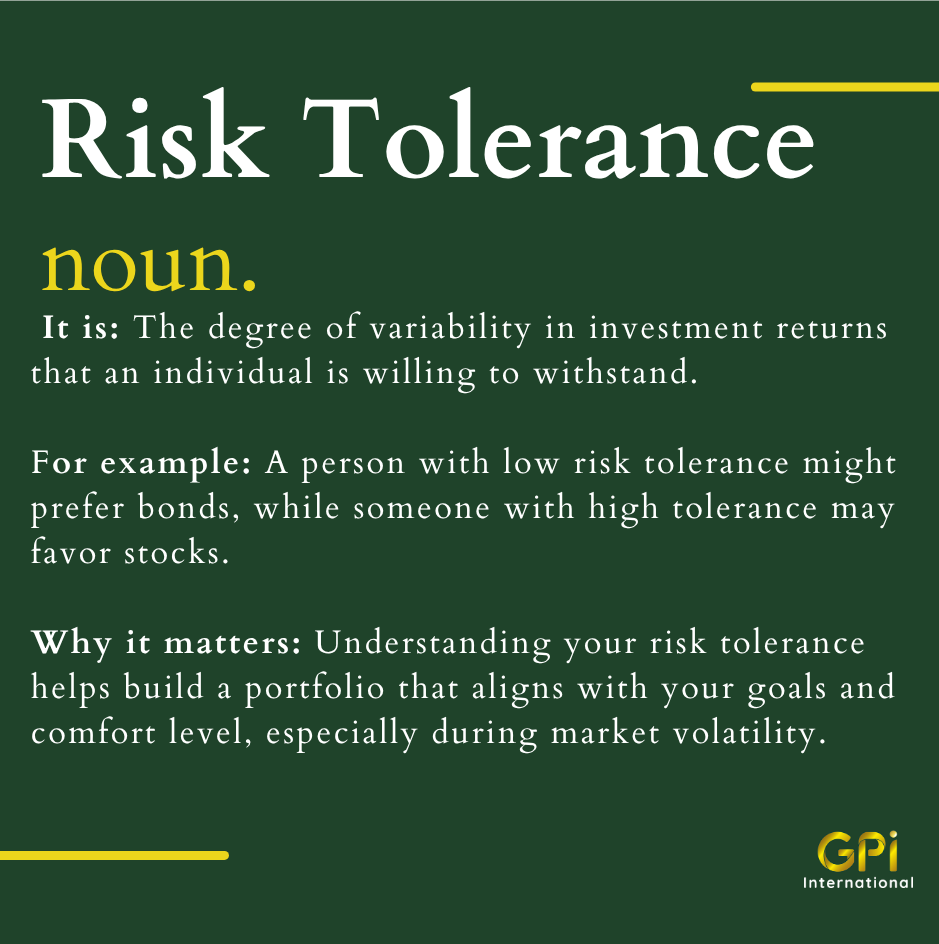Recession
A recession is a significant decline in economic activity that lasts for more than a few months. During this period, businesses produce and sell less, unemployment rises, consumer spending falls, and overall confidence in the economy weakens.
One of the most notable examples is the 2008 financial crisis, which triggered a global recession. Millions of people lost their jobs, companies shut down, and household spending contracted sharply.
Why Do Recessions Matter?
Recessions affect nearly every aspect of daily life and financial decision-making:
Employment: Companies may reduce staff or stop hiring.
Incomes: Wages often stagnate, and many households experience financial strain.
Markets: Stock prices can become volatile, and investment returns may decline.
Businesses: Profits shrink, and both small and large companies face tougher conditions.
How to Navigate a Recession
While recessions can feel daunting, preparation can help minimize financial stress. Some strategies include:
-Building an emergency fund to cover several months of expenses.
-Avoiding unnecessary debt and controlling discretionary spending.
-Diversifying investments to balance risk.
-Continuing to develop professional skills to stay competitive in the job market.
The Bottom Line
A recession is a natural part of the economic cycle—disruptive but not permanent. While individuals cannot prevent it, they can prepare for it. With thoughtful planning and a long-term perspective, it is possible not only to withstand a recession but also to position oneself for growth when the economy recovers.





